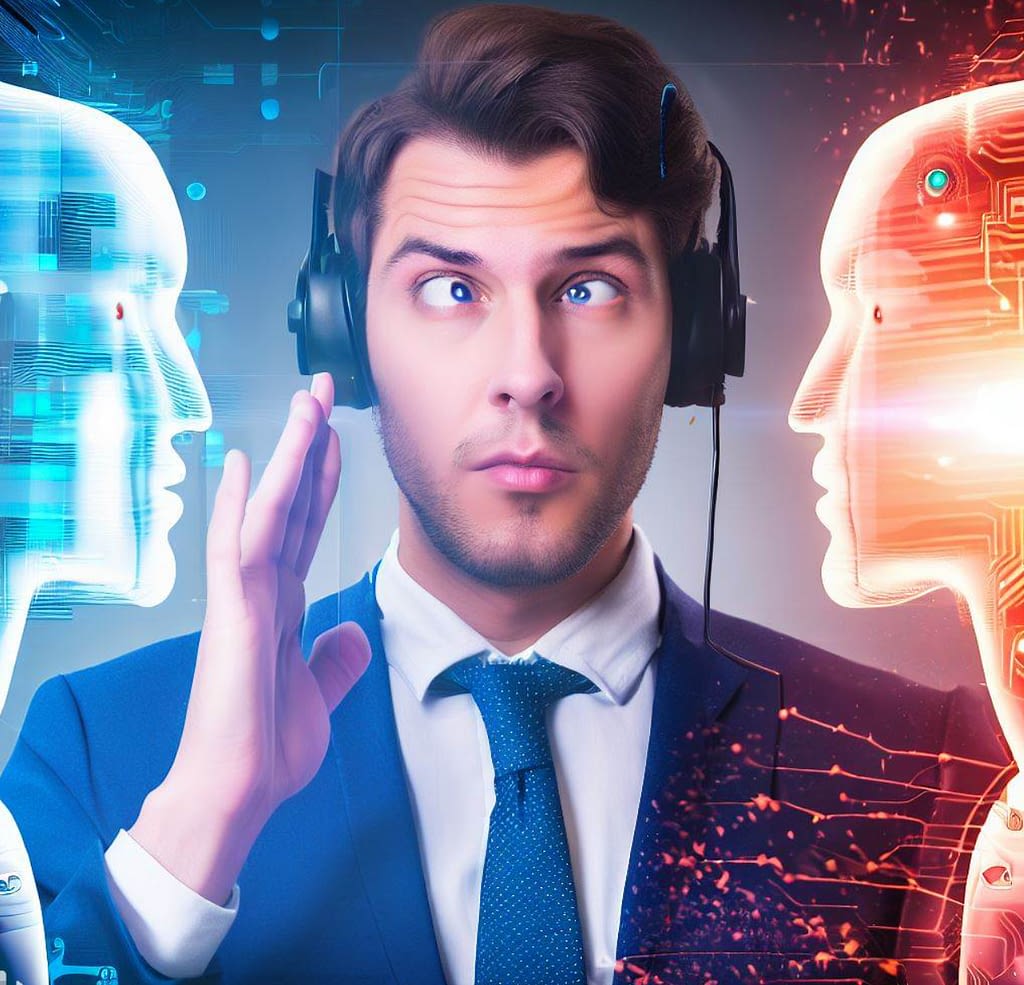
Prediction: we will send digital versions of ourselves to zoom calls, and no one will know.
In the rapidly evolving digital world, artificial intelligence (AI) has been steadily transforming the way professionals communicate and collaborate. After delving into recent advancements and experiences, I’ve gathered some crucial insights into how AI is revolutionizing online meetings.
One upcoming advancement is real-time voice translation in any language. This means understanding any speaker instantly, in a language you’re comfortable with, through both text and voice. Check out AI company Kudoway AI.
One of the most intriguing uses of AI technology is the Nvidia eye contact tool, which simulates maintaining eye contact during virtual meetings. I recently witnessed this in action at an event, where a speaker used this tool to great effect, only revealing its use at the end of the presentation. This left many attendees astounded, and it highlighted just how AI can enhance interpersonal connection in a virtual environment. Nvidia’s tool allows streamers and other video users to maintain eye contact with their audience while actually looking somewhere else, making their presentations more engaging and personal.
Looking ahead, the role of AI in meetings could become even more profound. In the near future, AI could not only prepare meeting agendas but also guide the conversation, much like a professional meeting leader. Imagine an AI saying, “Shall we move to the next meeting topic so we stay on task?” This potentiality could increase meeting efficiency and ensure that conversations remain productive and focused. Read my summary on how Microsoft will integrate GPT as CoPilot into 365.
Moreover, AI can generate automatic meeting summaries, ensuring that everyone stays informed and aligned post-meeting. Paul Allen of Soar.com shared an example of how AI can analyze non-verbal communications, another layer of insight that can enhance meeting effectiveness. This kind of analysis can lead to more thoughtful communication and aid memory retention, as it encourages active note-taking and engagement.
As these AI tools continue to evolve, we could soon witness the creation of digital doppelgängers. These AI-managed entities could attend work meetings on our behalf, engage in basic interactions, show appropriate body language, and send us a summary of the meeting. This fascinating development could fundamentally change our approach to meetings, freeing up time for other tasks and ensuring we never miss important discussions.
In summary, the future of professional collaboration will see AI providing real-time language translation, analyzing sentiment and body language, generating instant summaries and action items, guiding conversations, and even attending meetings on our behalf.
(I wrote all of this manually, but then worked with GPT4 for copy editing, then applied my own voice, image from Dall-e. See related tweet thread)
